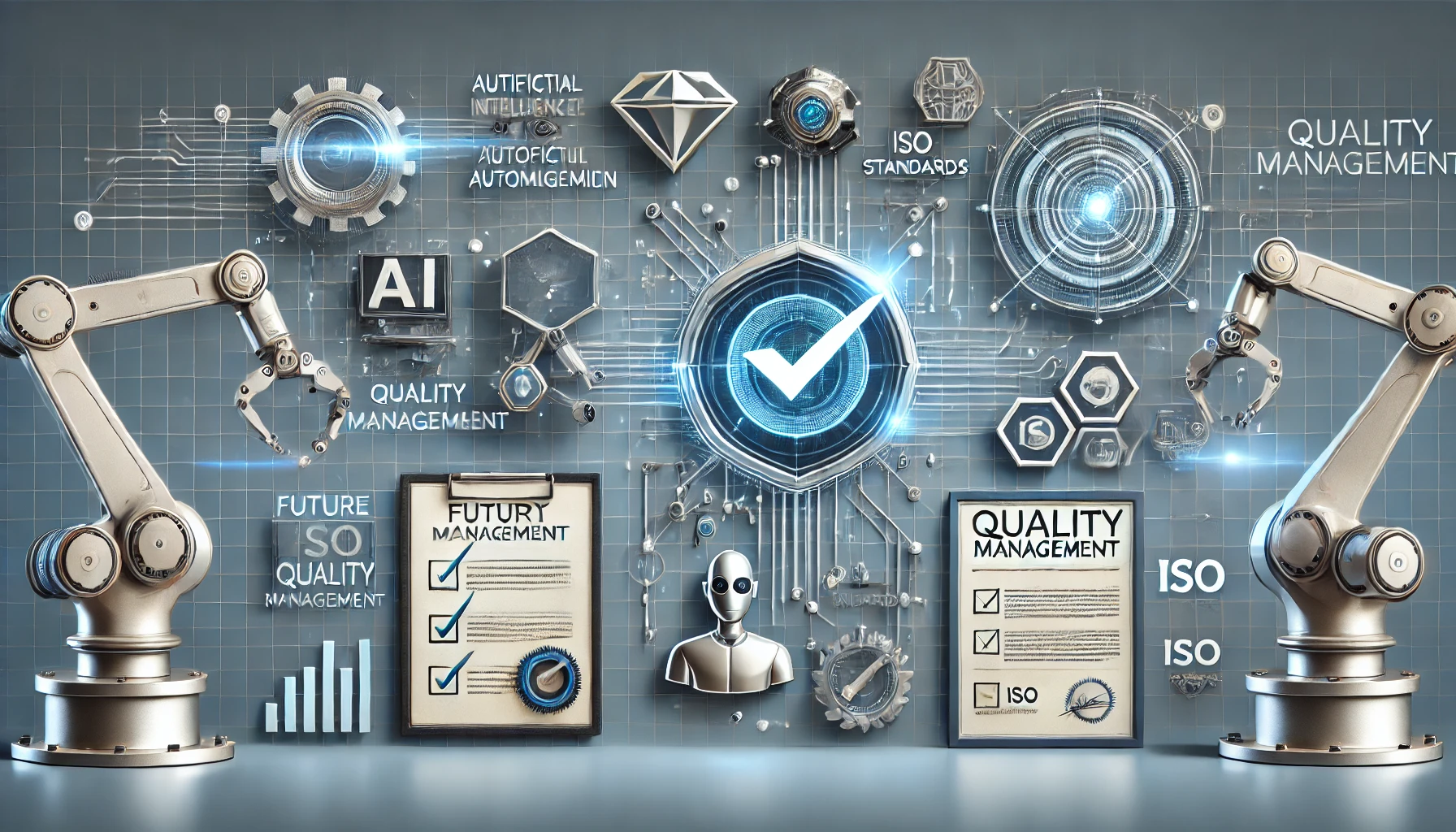
The Future of Quality Management: AI, Automation & ISO Standards
The world of quality management is undergoing a major transformation. With advancements in Artificial Intelligence (AI), automation, and evolving ISO standards, businesses are redefining how they maintain quality, improve efficiency, and enhance customer satisfaction.
But how do these technologies fit into quality management, and what role will ISO standards play in this future? In this blog, we’ll explore how AI and automation are reshaping quality management and why ISO standards remain critical in the evolving landscape.
1. The Evolution of Quality Management
Traditionally, quality management relied on manual inspections, human-driven audits, and periodic compliance checks. While effective, these methods were prone to human error, inefficiencies, and delays.
Today, with AI and automation, businesses can move toward real-time quality assurance, predictive analytics, and self-correcting systems. These technologies enhance the effectiveness of ISO 9001 (Quality Management System) and other industry-specific quality standards.
2. How AI is Transforming Quality Management
a) Predictive Analytics & Machine Learning
AI-driven predictive analytics help organizations anticipate quality issues before they occur. By analyzing past data, AI can detect patterns and predict defects, minimizing waste and rework.
b) Automated Quality Inspections
AI-powered computer vision systems can inspect products with near-zero error rates, improving accuracy in manufacturing, healthcare, and logistics industries.
c) Intelligent Process Optimization
AI helps businesses optimize processes by analyzing workflows and suggesting real-time improvements, ensuring compliance with ISO 9001 and other standards.
d) Chatbots & AI-Driven Compliance Monitoring
AI chatbots assist businesses in answering compliance-related queries, guiding employees through ISO standards, and automating documentation.
3. The Role of Automation in Quality Management
a) Robotic Process Automation (RPA) for Compliance
RPA helps organizations automate repetitive tasks such as ISO documentation, audit reporting, and compliance tracking, reducing human error and increasing efficiency.
b) Real-Time Monitoring & IoT Integration
With the Internet of Things (IoT), businesses can monitor quality in real time, ensuring that production processes comply with ISO standards without manual intervention.
c) Automated Corrective & Preventive Actions (CAPA)
AI-driven CAPA systems automatically identify root causes of defects and implement corrective actions, preventing future quality issues.
4. The Future of ISO Standards with AI & Automation
ISO standards are evolving to integrate AI-driven risk management, data security, and continuous improvement into their frameworks.
- ISO 9001: AI-powered Quality Management – Future ISO updates may include AI-based performance monitoring and self-learning quality systems.
- ISO 27001: AI-driven Cybersecurity – Automated threat detection and AI-driven security compliance are becoming standard practices.
- ISO 14001: AI for Sustainability – AI is enhancing environmental management by monitoring carbon footprints and optimizing energy use.
5. Conclusion: Quality Management in the AI Era
The integration of AI and automation with ISO standards is not just a trend—it’s the future of quality management. Businesses that embrace these innovations will experience higher efficiency, improved compliance, and enhanced customer satisfaction.
As AI and automation continue to evolve, ISO standards will adapt to ensure global quality benchmarks remain relevant and effective. Organizations must invest in digital transformation to stay ahead in the quality-driven world of tomorrow.